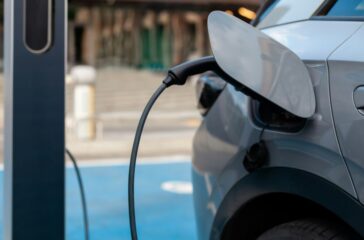Electric vehicle batteries adding to toxic PFAS pollution, study finds
By Shannon Kelleher
A type of toxic PFAS in lithium-ion batteries that power electric vehicles and other electronics is polluting air, soil and water in the United States and Europe, adding to concerns that the growing clean energy sector could harm the environment even as it strives to combat climate change, according to a new study.
Researchers said they analyzed samples of soil, sediment and surface water collected in 2022 near manufacturing plants in Minnesota, Kentucky, Belgium, and France, finding they were commonly contaminated with a subtype of per- and polyfluoroalkyl substances (PFAS) called bis-perfluoroalkyl sulfonimides (bis-FASIs) at concentrations in the parts per billion.
The study, published Monday in the journal Nature Communications, also found that bis-FASI emitted into the air at these sites may travel long distances, potentially polluting areas far from the facilities where they are made and used.
“If we are not careful about the choices of materials and chemicals used in renewable energy technologies, then it is a concern that this may become a new source of PFAS pollution,” said Ariana Spentzos, a science and policy associate at the Green Science Policy Institute. Spentzos was not involved in the study.
“However, it is a false choice to choose between renewable energy and less PFAS pollution,” she added, noting that there are viable alternatives for many uses of PFAS in renewable energy.
 EWG
EWG